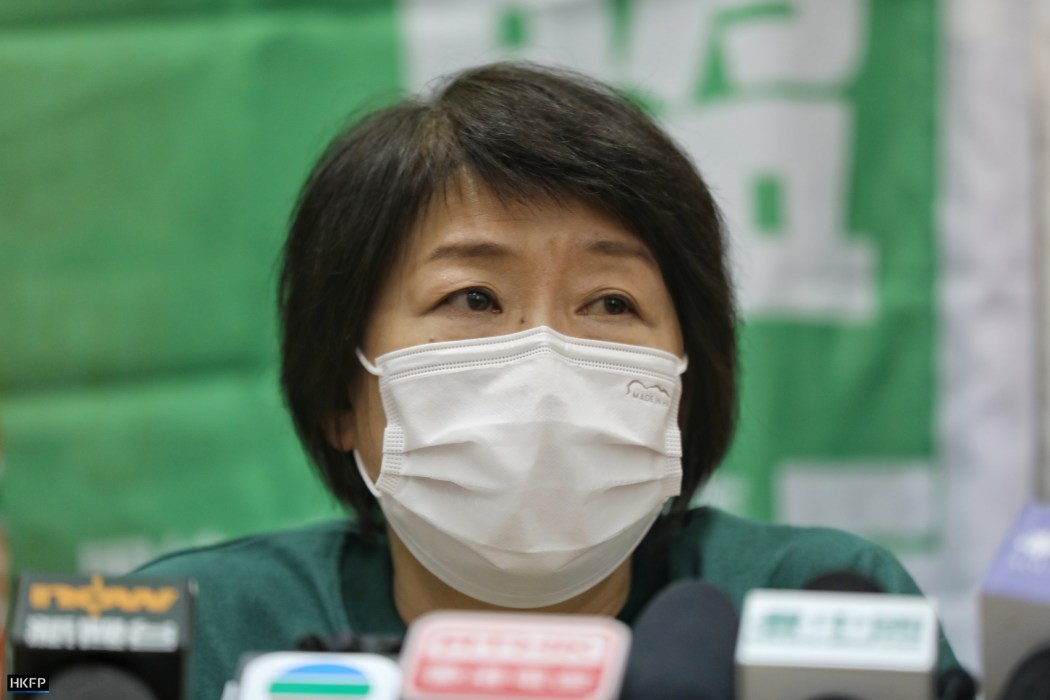Two people have been arrested after allegedly removing evidence from the home of Elizabeth Tang, a Hong Kong labour rights’ activist who was arrested on Thursday under the Beijing-imposed national security law.
Police announced the arrests of a 63-year-old woman and 65-year-old man on Saturday afternoon, soon after Tang – who has been accused of colluding with foreign forces – was granted bail.

According to local media reports, the two arrested on Saturday were Tang’s sister, Marilyn Tang, and lawyer Frederick Ho, the brother of former lawmaker Albert Ho.

The police said in a statement on Sunday that the pair, suspected of conspiring to pervert the course of justice, had been granted bail and had to report to the police in mid-April.
‘Perplexed’
Elizabeth Tang, the former chief executive of the pro-democracy Hong Kong Confederation of Trade Unions, was arrested last Thursday by national security police outside Stanley Prison.

She was apprehended after visiting her husband Lee Cheuk-yan, who has been remanded in custody pending trial in another national security case. He has been accused of inciting subversion along with Albert Ho, Chow Hang-tung, and the defunct group that organised the city’s annual Tiananmen vigils.
Tang was granted bail on Saturday afternoon at the police headquarters in Wan Chai. She had to post a cash bail of HK$200,000, and was told to report to the police on Friday.
The veteran labour rights’ activist said that her passport, phone, debit and credit cards had been confiscated by the police.

Speaking to reporters outside the police station on Saturday, Tang, who moved to the UK with her daughter in 2021, said that she had not expected to be arrested after returning to Hong Kong.
“I am perplexed, because all along my work had been related to labour rights and organising unions, I don’t understand how it is against the law, or even endangers national security,” Tang said.
The sweeping security legislation, enacted in June 2020, criminalised secession, subversion, collusion with foreign forces and terrorist acts, which have been broadly defined to include disruption to transport and other infrastructure.
The move gave police sweeping new powers, alarming democrats, civil society groups and trade partners, as such laws have been used broadly to silence and punish dissidents in China. However, the authorities say it has restored stability and peace to the city.
Support HKFP | Policies & Ethics | Error/typo? | Contact Us | Newsletter | Transparency & Annual Report | Apps
Help safeguard press freedom & keep HKFP free for all readers by supporting our team
























